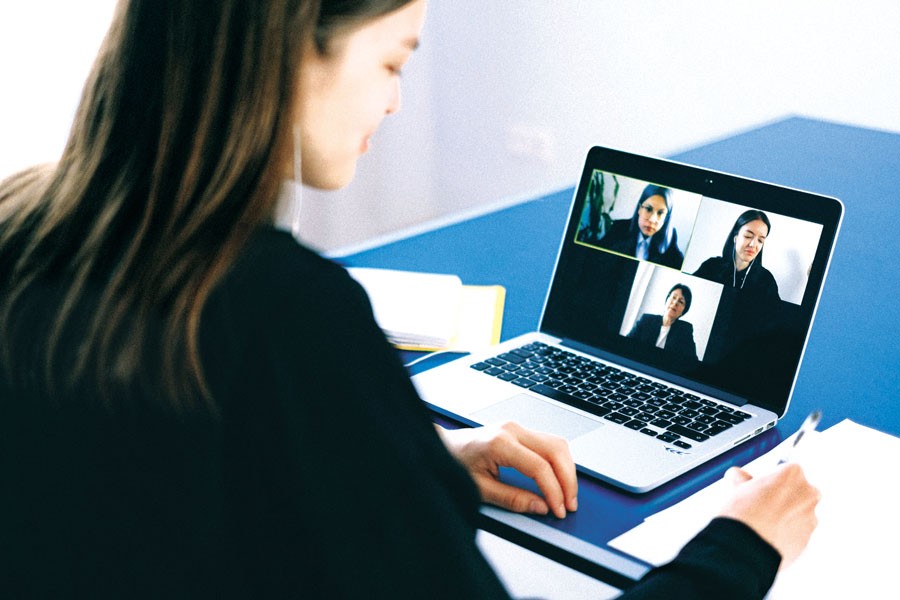
Published :
Updated :

The coronavirus pandemic has changed the work culture throughout the world for good. Working from home was unimaginable in the pre-Covid times. Except for a few software companies, it was not a common scenario. But now with the changing status-quo of the world, along with a lot of other things, the culture of office activities has also changed perpetually.
In the context of Bangladesh, with the low rate of Covid-19 cases in the past couple of months, a lot of organisations have resumed their office activities like what they used to do before the pandemic. But after spending more than a year working from home, transitioning to an office environment has not been easy.
An employee of a renowned digital marketing agency who prefers to remain anonymous shared, "I have joined the company during the pandemic, hence from the very beginning, I had to continue working from home. But since last month, I have been going to my office quite frequently. It was a bit hard to socialise and get accustomed to the culture at the beginning, but I am slowly coming to terms with them, although I prefer working from home."
Overall, the reaction of employees is quite mixed regarding this issue and many have iterated that it is quite impossible to judge whether working from home is better than regular office work or not. Both the scenarios are said to have their own advantages and disadvantages.
Syed SamiulAlam, a graduate from IBA of University of Dhaka who is working as a business analyst for Radiant Pharmaceuticals Limited, said, "The first half of 2020 forced many companies to adapt to a work- from- home culture, which brought a shift in working hours. For instance, I've observed higher total working hours for most service-based companies. Shifting from a remote office to the conventional system means more hours lost at traffic jams which could be spent on work. It is less productive for the groups which adapted to the technologies more efficiently. It may have an impact on such employees' life balance as well as on motivation. I think it's a good opportunity for the local companies to introduce an innovative option combining the remote and conventional system. A system with an option of two to three days of work-from-home will save employee's commuting hours which should translate to higher motivation through better work-life balance."
His words are echoed by a lot of fresh millennial employees who are working in the private sector, as they are more or less tech-savvy. But the scenario for the government sector is a bit different.
Although the government has made a lot of services available online, working from home is not that prevalent among government service holders. Hence, during the period of lockdown, a lot of offices remained closed which happened to be of great discomfort for the general populace. Hence, many have suggested that in case of another severe outbreak, working from home might be a feasible and effective way of providing people service.
One of the biggest concerns of employees who have shifted from online to offline has been acclimatising with the environment. Due to working from home for a long period of time, it's quite difficult to be comfortable working in a professional atmosphere again. But in general, this problem goes away with the passing of a few weeks.
Although many employees prefer working from home, they have also raised concerns about the fact that working from home generally translates to getting more stuff done in a limited amount of time and hence are happy to be back in the office.
The Covid-19 pandemic has permanently changed the world. We had to adapt to a lot of sectors which used to be completely different in the past. Office work has not been an exception. Since working from home has become quite a popular phenomenon due to the pandemic, it would not be unlikely to see a few organisations combining both working from home and regular office activity in the near future.
Rassiq Aziz Kabir is a student of Economics at the University of Dhaka.
[email protected]


 For all latest news, follow The Financial Express Google News channel.
For all latest news, follow The Financial Express Google News channel.